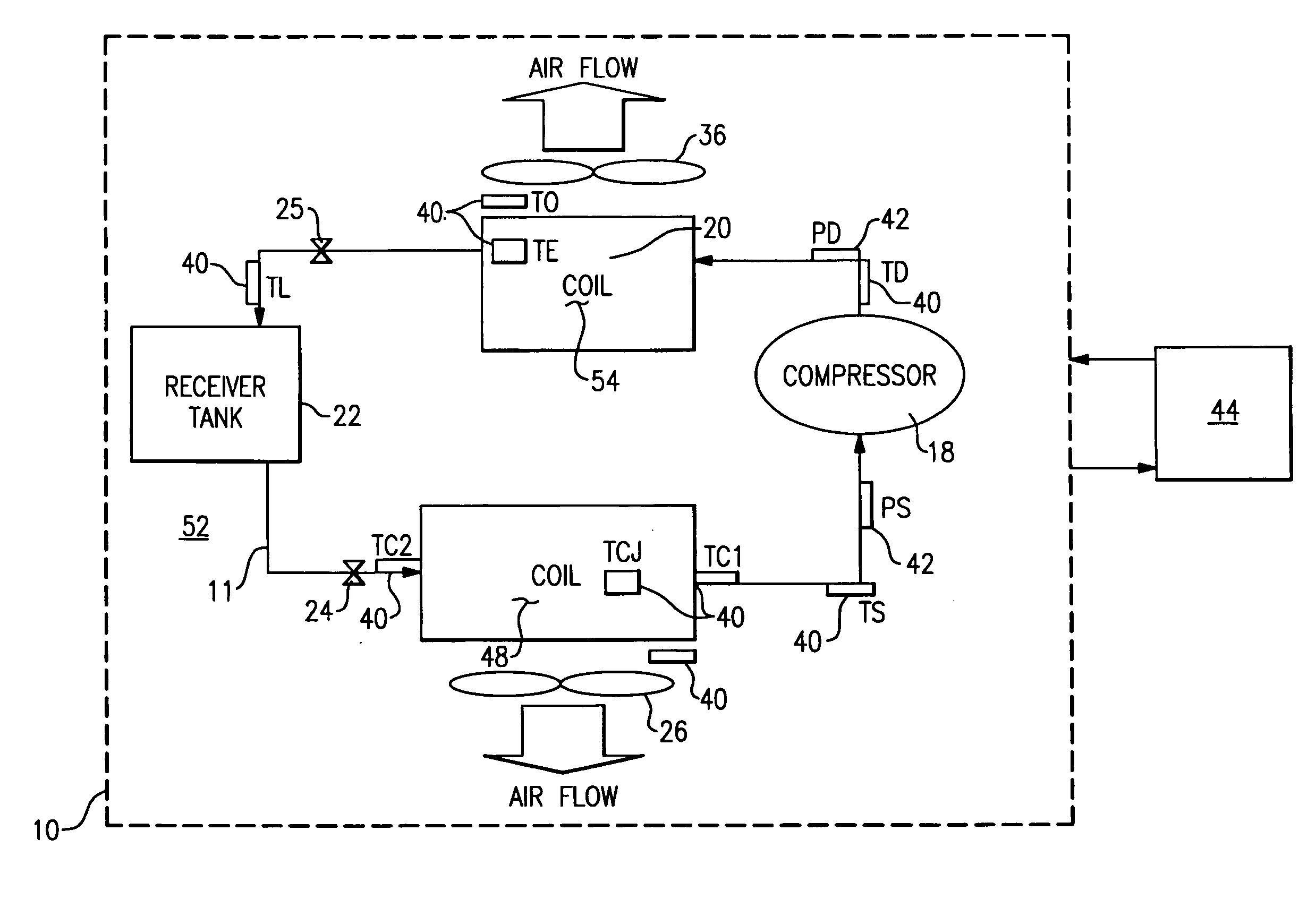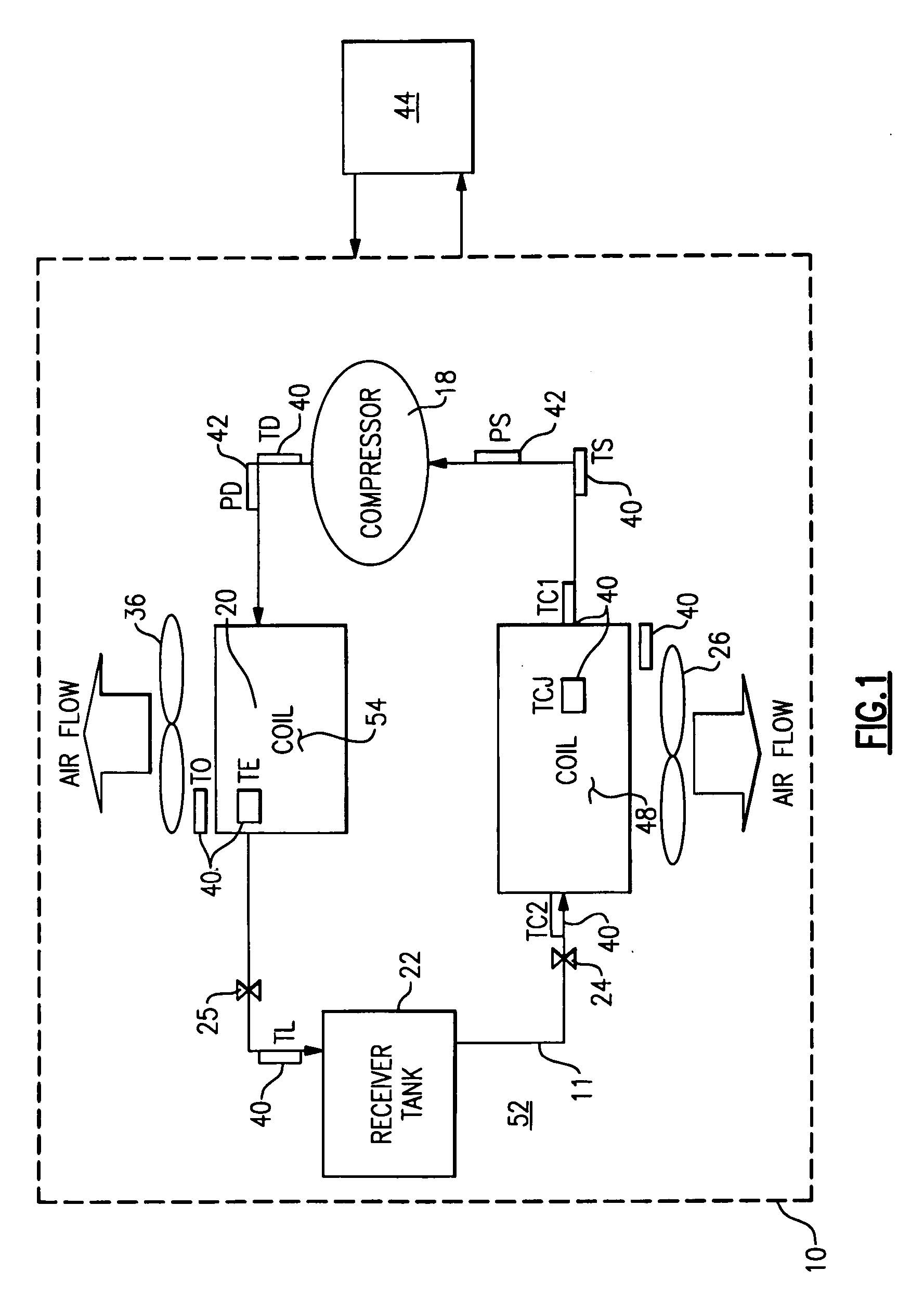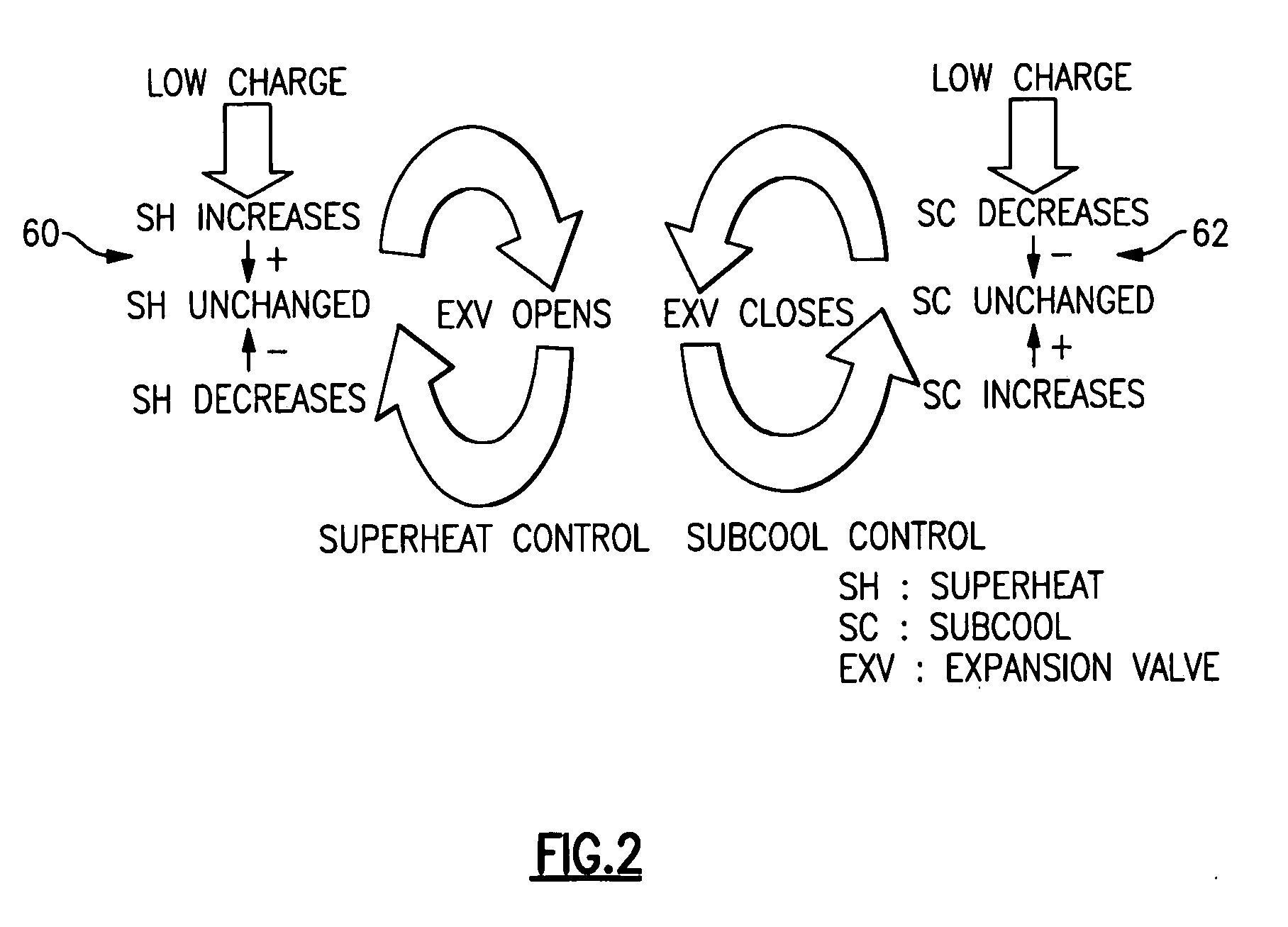Charge loss detection and prognostics for multi-modular split systems
a multi-modular split and charge technology, applied in the direction of instruments, heat measurement, lighting and heating apparatus, etc., can solve the problems of hvac system components that fail before the time of the hvac system, slow rate, and typical loss of refrigeran
- Summary
- Abstract
- Description
- Claims
- Application Information
AI Technical Summary
Benefits of technology
Problems solved by technology
Method used
Image
Examples
Embodiment Construction
[0021] Referring to FIG. 1, a vapor compression heat pump system 10 includes a first coil 48 and second coil 54. A refrigerant circuit 11 includes a desired amount of refrigerant that flows between the first coil 48 and the second coil 54. The first coil 48 and the second coil 54 are an evaporator and a condenser respectively if the flow of refrigerant is counterclockwise in the refrigerant circuit 11. The first coil 48 and the second coil 54 are a condenser and an evaporator respectively if the flow of refrigerant is clockwise. A compressor 18 compresses air from the evaporator side to the condenser side. A first expansion valve 24 and a second expansion valve 25 control refrigerant flow through the coils 48 and 54. The system 10 includes a liquid reservoir 22 for storing liquid refrigerant. The first coil 48 has a fan 26 and the second coil 54 has a fan 36.
[0022] The system 10 can operate in either a heating mode or a cooling mode depending on the refrigerant flow direction. Spee...
PUM
 Login to View More
Login to View More Abstract
Description
Claims
Application Information
 Login to View More
Login to View More - R&D
- Intellectual Property
- Life Sciences
- Materials
- Tech Scout
- Unparalleled Data Quality
- Higher Quality Content
- 60% Fewer Hallucinations
Browse by: Latest US Patents, China's latest patents, Technical Efficacy Thesaurus, Application Domain, Technology Topic, Popular Technical Reports.
© 2025 PatSnap. All rights reserved.Legal|Privacy policy|Modern Slavery Act Transparency Statement|Sitemap|About US| Contact US: help@patsnap.com



